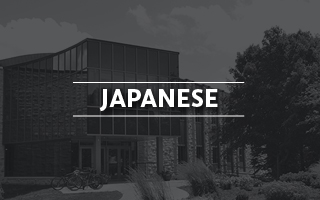Are you up for the challenge?
St. Olaf will challenge you with the breadth and depth of a rigorous liberal arts education.
Within your major, professors will expect you to master the discipline, demonstrate your knowledge, and see the connections between big ideas.
Your General Education courses will ensure you develop a wide range of skills and the flexible habits of mind to meet 21st-century challenges: languages, quantitative reasoning, scientific literacy, creativity and collaboration, and the ability to communicate your knowledge effectively.
majors, concentrations, and pre-professional programs
student to faculty ratio
ranking for best undergraduate teaching by U.S. News & World Report, 2025
MAJORS

























































Academics at St. Olaf

St. Olaf is the first step toward a lifetime of learning and doing, of seeing creative solutions to real-life, global challenges. The breadth and depth of our curriculum ensures that you’ll develop the skills necessary for success in all fields.
- Africa/African Diaspora
- Asian Studies
- Business and Management Studies
- Biomolecular Science
- Educational Studies
- Engineering Studies
- Environmental Studies
- Family Studies
- German Studies
- International Relations
- Latin American Studies
- Linguistic Studies
- Management Studies
- Mathematical Biology
- Media Studies
- Middle Eastern Studies
- Neuroscience
- Nordic Studies
- Race and Ethnic Studies
- Statistics & Data Science
- Gender & Sexuality Studies
- Church Music
- Elective Studies
- Music Education
- Performance
- Theory/Composition
- Accounting
- Architecture
- Business and Management
- Computer Engineering, Software Engineering
- Dentistry
- Education
- Engineering
- Health Studies
- Information Technology and Information Systems
- Journalism
- Law
- Medicine
- Occupational Therapy
- Performing Arts
- Pharmacy
- Physical Therapy
- Public Policy
- Teaching Certification
- Theology and Seminary
- Veterinary Medicine
- Mathematics, Statistics, and Computer Science
- Biology
- Economics
- Psychology
- Chemistry
- Political Science
- Music
- Environmental Studies
- Kinesiology
- Art and Art History
WHAT’S YOUR INTEREST?
St. Olaf offers a liberal arts experience with the benefits of a music conservatory.

Classroom Experience
We don’t have graduate students or teaching assistants. Our professors will push you hard in class, but they’ll also be the mentors who challenge you to think about where your learning will lead. Because they will know you well, their reference letters and recommendations can open doors as they follow your life and career long after they’ve given you your last grade.
The Art of Conversation
Conversation is at the heart of a St. Olaf education. We want students to develop the ability to listen carefully, argue forcefully, and be the kind of engaged thinker who makes a conversation more interesting.
St. Olaf’s signature Conversation programs are interdisciplinary, team-taught explorations that take students on five distinct intellectual journeys through influential texts and ideas that have shaped our past and will guide our future.
.
.
.
Learn more
Average participation in a first-year Conversation program